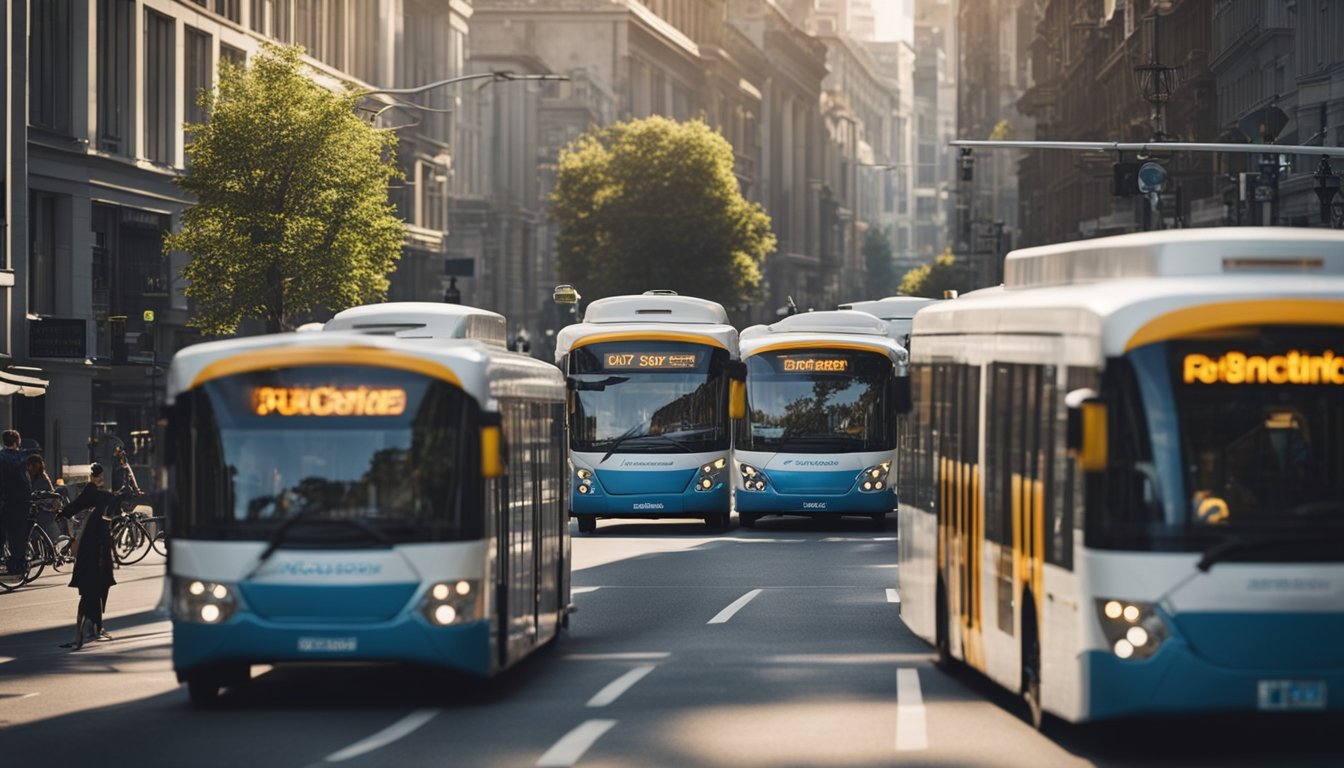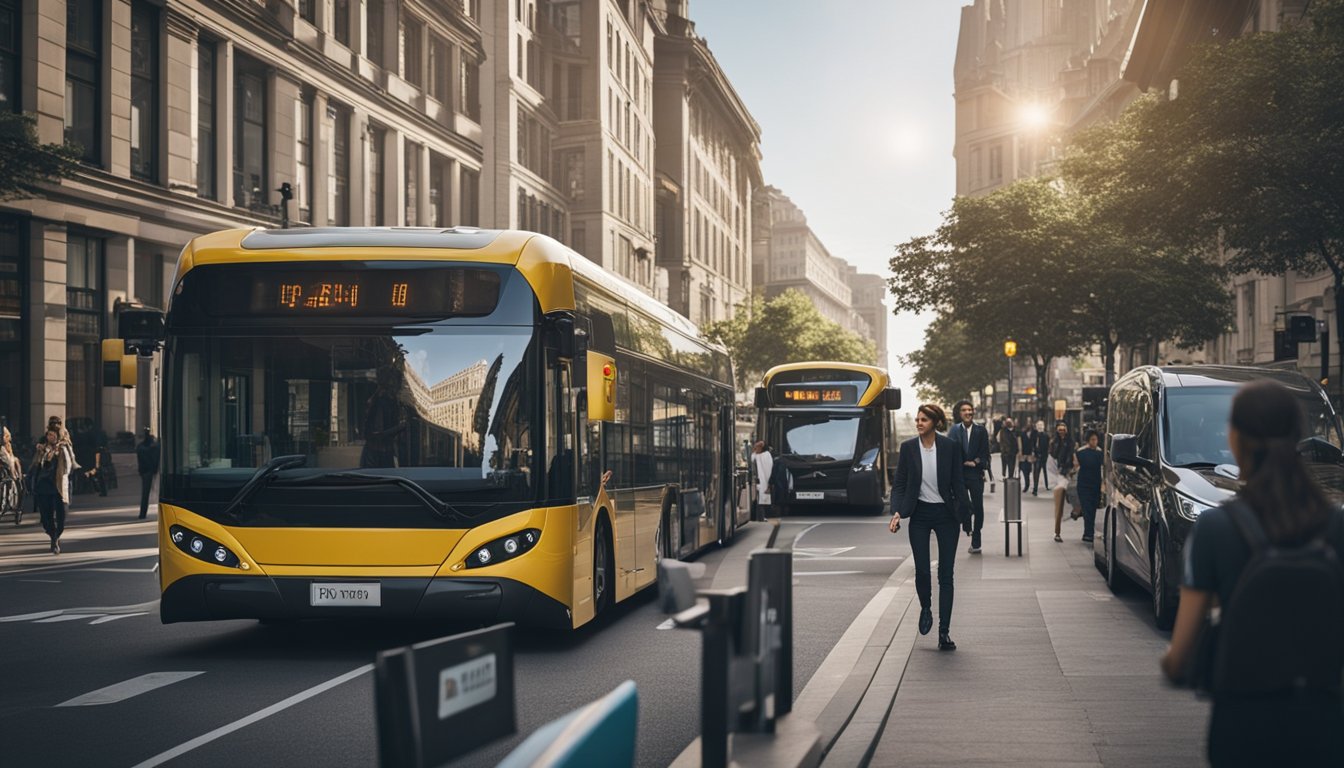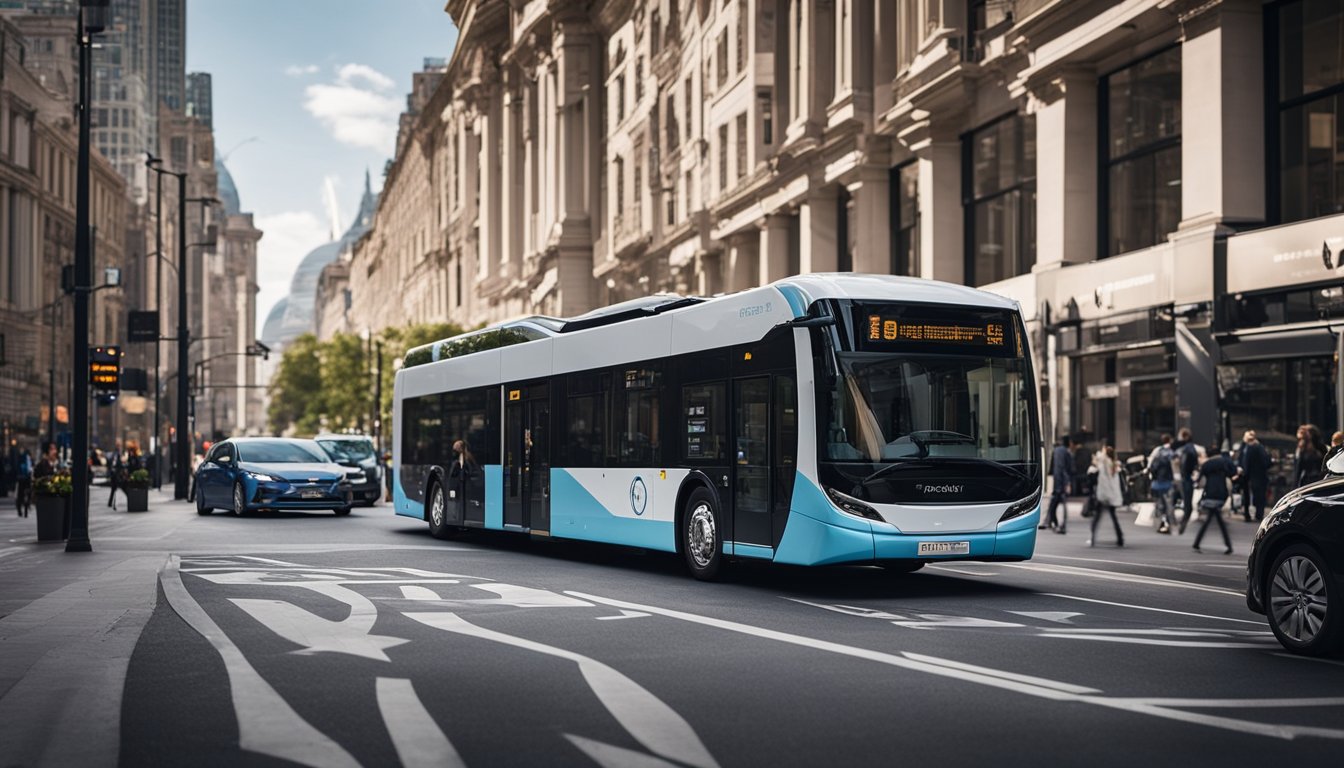Late updated: 07 Jan 2025 12:01
Written by: Amber Collins
Sustainable Transport Innovations for UK Startups: Driving the Future of Mobility
Sustainable transport has emerged as a cornerstone for innovation in the UK, particularly amongst startups that are determined to reshape our cities and towns. Startups are crucial in reducing the nation's CO2 emissions by offering innovative mobility solutions that enhance environmental sustainability. Whether it's electric scooters with swappable batteries or car-sharing platforms that eliminate reliance on private vehicles, these enterprises are at the forefront of a green revolution.

The rise of sustainable transport solutions isn't just about cutting-edge technology; it's also about adopting robust business strategies that facilitate widespread environmental change. From tech accelerators supporting pioneering ideas to funding rounds aimed at scaling operations, these startups are employing strategic approaches to capture market interest and drive growth. Our focus is on the tangible impact these innovations have on daily life and the overall UK transport sector.
This exploration reveals how sustainable transport is transforming not only how we commute but also how we perceive mobility. With solutions tailored to urban and rural needs alike, these startups are paving the way for a cleaner, more efficient transport future. Their role in promoting sustainable living practices makes them vital players in the industry landscape.
Key Takeaways
- Startups drive sustainable transport advancements and CO2 emission reduction.
- Strategic business approaches amplify the impact of green mobility solutions.
- Sustainable transport innovations redefine commuting and mobility perceptions.
Emerging Technologies in Sustainable Transport
Sustainable transport is rapidly advancing, driven by innovation across electric vehicles, eco-friendly energy, intelligent systems, and urban transport models. These technologies not only enhance efficiency but signify a move towards net zero and reduced emissions.
Electric Mobility and Vehicles
Electric mobility has become a cornerstone of sustainable transport. Electric vehicles (EVs) offer zero emissions, which significantly benefits urban air quality. Recent breakthroughs in battery technology have produced lighter, longer-lasting power sources, facilitating extended travel ranges and reducing charging times.
Our focus on developing advanced electric powertrains has also notably increased vehicle efficiency. By investing in these technologies, we can contribute to a decarbonized future. Electric bikes and e-scooters further exemplify our commitment to green transport alternatives that integrate smoothly into urban settings.
Eco-Friendly Energy Solutions
Transitioning to green energy sources is crucial in sustainable transport. Among these, renewable energy options like solar and wind are spearheading the charge. Hydrogen fuel cells are an exciting development, converting hydrogen into clean electricity, providing an alternative to traditional battery systems.
We actively explore these advanced energy solutions to reduce our carbon footprint. By focusing on integrating renewable power into transport systems, we aim to achieve significant emission reductions and support the global net-zero targets.
Advancements in Intelligent Transportation Systems
Intelligent transportation systems use cutting-edge technology such as artificial intelligence, data analytics, and computer vision to transform how we manage and operate transport networks. These systems enhance traffic flow, reduce congestion, and improve public transit efficiency.
We are also leveraging blockchain to ensure transparent data sharing and security. Intelligent systems facilitate real-time information exchange, providing valuable insights for decision-making. Our commitment to innovative thinking drives us to pursue intelligent solutions that foster safer, more adaptable transport infrastructures.
Innovative Urban Transport Models
Urban mobility faces numerous challenges, and innovative transport models offer promising solutions. Mobility-as-a-service (MaaS) is evolving, allowing seamless integration of different transport modes under a single digital platform. This encourages the use of shared and green mobility options.
Alongside this, the emergence of micro-mobility, such as e-scooters and e-bikes, provides flexible and sustainable short-distance travel options. By implementing these innovative models, we can address urban congestion, improve city liveability, and enhance our users' overall travel experience. Through these efforts, we are reimagining urban transport to align with a sustainable future.
Business Strategies for Sustainable Transport Startups

Addressing the pressing issues like carbon emissions and climate change calls for innovative business strategies. These strategies focus on eco-friendly practices and efficient logistics to create a sustainable impact.
Developing Sustainable Business Models
Creating sustainable business models is fundamental for transport startups aiming to reduce environmental impact. By adopting a subscription model, businesses can offer more predictable revenues and customer loyalty. These models ensure services align with the latest technologies to minimise pollution.
Efforts should concentrate on reducing greenhouse gas emissions. Investing in electric or hydrogen-powered fleets can significantly cut emissions. As we develop these models, the focus should remain on sustainability and the practical needs of modern transport.
Logistics and Last-Mile Innovations
Achieving efficiency in logistics, especially in last-mile delivery, is pivotal in reducing energy consumption and emissions. Implementing a robust transportation management system (TMS) can streamline operations, ensuring timely and eco-friendly delivery services.
We must innovate last-mile logistics by exploring shared delivery models that maximise load capacity and reduce the number of trips. Technology-driven solutions like drone deliveries can play a significant role in minimising the carbon footprint of delivery services.
Building Eco-Friendly Shipping and Fleet Operations
Adopting eco-friendly strategies in shipping and fleet operations requires comprehensive planning. Selecting vehicles with lower emissions and utilising route optimisation software helps reduce fuel consumption. It's crucial to incorporate routine maintenance schedules to ensure vehicles operate efficiently.
Fleet management must include regular training for drivers on eco-driving techniques. This reduces carbon emissions and improves fuel efficiency. Ultimately, integrating these practices enhances sustainability in transportation operations.
Focusing on SMEs and Market Expansion
Small and medium enterprises (SMEs) are pivotal in market expansion within sustainable transport. By targeting SMEs, startups can introduce customised solutions that align with their unique needs, fostering long-term partnerships.
Expanding into urban transportation markets opens new opportunities. We should leverage local insights and collaboration to develop transport solutions that cater to metropolitan areas. Pursuing these avenues not only boosts our presence but also amplifies our impact on lowering overall emissions.
Frequently Asked Questions

In this section, we examine various aspects of sustainable transport innovations that UK startups are exploring, including emerging technologies, key players, successful initiatives, and the challenges being faced.
What are the emerging sustainable transport technologies being adopted by UK startups?
UK startups are increasingly embracing electric vehicles, hydrogen fuel technologies, and smart logistics solutions. These innovations help minimise environmental impact and enhance operational efficiency. Electric bikes and scooters are also gaining popularity in urban settings, offering flexible and eco-friendly transportation alternatives.
Which UK companies are leading in the development of eco-friendly logistics solutions?
Companies like Arrival and Rivian are at the forefront, developing electric delivery vans and trucks. These vehicles aim to reduce emissions in supply chains. Similarly, companies such as Octopus Energy are innovating with integrated energy solutions to support electric vehicle infrastructure.
What examples exist of successful green transportation initiatives introduced by UK enterprises?
In London, initiatives such as the adoption of electric buses and zero-emission zones have set benchmarks in sustainable urban mobility. Companies like Network Rail are investing in electrifying train routes to curtail carbon footprints in public transit systems.
How are startups contributing to the advancement of sustainable shipping methods in the UK?
Startups are utilising autonomous drones and electric maritime vessels to research more sustainable shipping avenues. These technologies promise reductions in fuel consumption and emissions, especially crucial for reducing the environmental impact of freight transport.
In what ways are UK businesses approaching the reduction of their carbon footprint in transport operations?
UK businesses are incorporating renewable energy sources for powering transportation and investing in energy-efficient logistics. Many are also adopting carbon offset programmes to balance emissions. Strategies involve optimising route planning to cut down on unnecessary travel and fuel usage.
What challenges are UK startups facing in implementing sustainable transport innovations, and how are they overcoming them?
Challenges include high initial costs, regulatory hurdles, and technological limitations. Startups are overcoming these by leveraging government grants and private investments. Collaborative efforts between technology firms and transportation companies are also crucial in creating innovative solutions adapted to the UK market.
